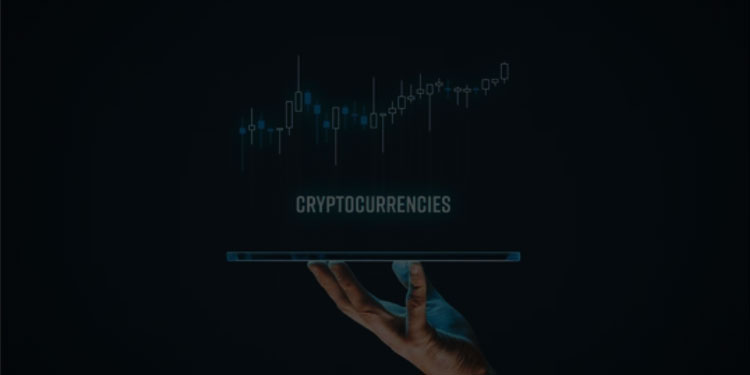Things to decide before you get started
Decide if you want to own cryptocurrency, or if simply gaining exposure to one or more cryptocurrencies is enough for you. If you simply want exposure, you can for instance use Contracts for Differences (CFDs) to achieve this. Contracts for Difference make it easy to benefit from both rising and falling markets, and you don´t have to go through the trouble of short-selling to benefit from falling prices.
If you want to own cryptocurrency, decide if you want your keep it in your own crypto wallet or if storing cryptocurrency in your trading account at an exchange/broker online is enough. Storing cryptocurrencies with an exchange/broker is a bit riskier – if the exchange/broker goes down or is hacked, you may lose your cryptocurrency.
If you want to engage in day trading or swing trading, opening a broker account or cryptocurrency exchange account is the easiest way to go. (Cryptocurrency is also bought and sold directly between users without any broker/exchange in between, but that method is less suitable for day trading and more feasible for longer-term investing.) There are plenty of online brokers and exchanges to choose from where you can engage in cryptocurrency trading.
Are you okay with big volatility? Cryptocurrencies are notoriously volatile, and there is no central bank in charge taking measurements to stabilize them. If watching the market price of something you own take a dive, then skyrocket and then take a dive again gives you an ulcer, there are other ways to make money that will probably be more suitable for you than cryptocurrency trading and cryptocurrency investing.
Learn about the basics
Yes, you can just throw yourself in there, but some cryptocurrency and hope for the best. But we suggest you actually do your homework and learn a bit about the basics of blockchain-based cryptocurrencies such as Bitcoin and Litecoin. Understanding the framework will make it easier for you in the short and long run.
Remember that there is more than just Bitcoin
Bitcoin gets a lot of attention in the media since it is the cryptocurrency with the largest market capitalization and trading volume. It should be noted, however, that there are several thousands of cryptocurrencies out there, and some of them have a serious market capitalization and daily trading volume even if they do not reach the heights of Bitcoin. When you are looking into cryptocurrency trading, be aware that there are excellent trading opportunities out there that involve more than just BTC:USD.
Be picky when you select a broker and trading platform
If you want to trade cryptocurrency on a trading platform rather than just P2P (and you probably do if your plan is day trading rather than longer-term investing), be picky when you make your choices.
Some platforms specialize in cryptocurrencies, while others are broader and offer other assets and financial products alongside the cryptos. It is not possible to say that one category is better than the other – there are excellent choices and poor choices available in both of them.
You can use your phone to trade cryptocurrency
Yes, you can, and many traders do.
You can download an app to your phone that will be your crypto-wallet.
You can sign up with a broker account and get access to a trading platform that is optimized for mobile phones. This is a popular choice among cryptocurrency day traders.
You can hang out in forums online where people trade cryptocurrencies directly with each other. (Typically not suitable for day trading techniques.)
Beware of fees
When you sign up with a cryptocurrency exchange, always check what trading there will cost you. Below, we have listed a few examples of fees to look for. Please note that not all exchanges will charge you all of these fees; each exchange has its own free structure.
Exchange fee
A fee you pay to utilize the exchange. This can be influenced by several factors, including exactly which cryptocurrencies you are trading.
Trade fee/transaction fee
A fee paid for each transaction on the exchange.
Marker fee
A fee you have to pay to make an offer to sell.
Taker fee
A fee you have to pay to accept an offer.
Deposit fee
A fee you pay when you deposit money into your trading account. Exactly which method you use (e.g. VISA, MasterCard, Neteller, bank transfer, etc.) can impact the fee. Deposit fees can be fixed or percentage-based.
Withdrawal fee
A fee you pay when you withdraw money from your trading account. Exactly which method you use (e.g. VISA, MasterCard, Neteller, bank transfer, etc.) can impact the fee. Some exchanges will allow you a certain number of withdrawals fee-free each week or month, and only charge a withdrawal fee if you make more frequent withdrawals. Withdrawal fees can be fixed or percentage-based.






















